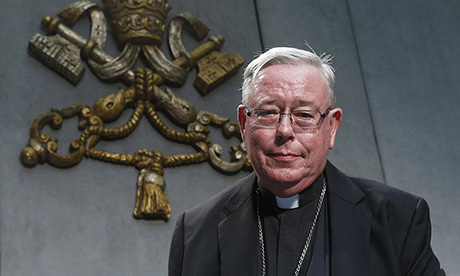A newly named top adviser to Pope Francis believes that it might one day be possible to revisit Pope John Paul II’s prohibition on the ordination of women to the priesthood.
Luxembourg Cardinal Jean-Claude Hollerich, a leading organiser of the Vatican’s ongoing synod process, also said that the church’s language of describing LGBT persons as “intrinsically disordered” is “dubious.”
While emphasising Francis is not in favour of the ordination of women, Cardinal Hollerich said that it remains an open conversation among some Catholics and that he would like to see women given greater pastoral responsibilities.
“Pope Francis does not want the ordination of women, and I am completely obedient to that,” Hollerich said in a wide-ranging interview with the Croatian Catholic weekly, Glas Koncila, published on March 27.
“I am a promoter of giving women more pastoral responsibility. And if we achieve that, then we can perhaps see if there still is a desire among women for ordination,” he added.
The Jesuit cardinal, the relator, or chairperson of the 2023 and 2024 Synod of Bishops, said that should the church ever reconsider the question, it should do so in consultation and unity with the Orthodox Church.
“We could never do that if it would jeopardise our fraternity with the Orthodox or if it would polarise the unity of our church,” he said. “Love is not something abstract; it is the love for our sisters and brothers that prevents us from doing things that would alienate them.”
Ordinatio Sacerdotalis not infallible
When asked if a future pope could rule against John Paul II’s 1994 apostolic letter Ordinatio Sacerdotalis, which said that the Catholic Church does not have the authority to ordain women, Hollerich said it was possible.
But he denied that the teaching of Ordinatio Sacerdotalis is infallible and said, “I think there could be room for the doctrine to be expanded.”
He went on to offer a comparison to Pope Pius IX’s 1864 “Syllabus of Errors,” which was considered infallible and condemned religious freedom and interfaith dialogue. Such practices, the cardinal said, are now common in the church.
Nonetheless, the cardinal returned to his position that the decision of the current Pontiff would guide him. “But at this moment, if Pope Francis tells me it’s not an option, it’s not an option.”
“It is very difficult to be Catholic without obedience to the pope. Some very conservative people always preached obedience to the pope, as long as the pope said the things they wanted to hear,” said the cardinal.
“The pope says things that are difficult for me too, but I see them as a chance for conversion, for becoming a more faithful and happier Christian,” he added.
Sources
